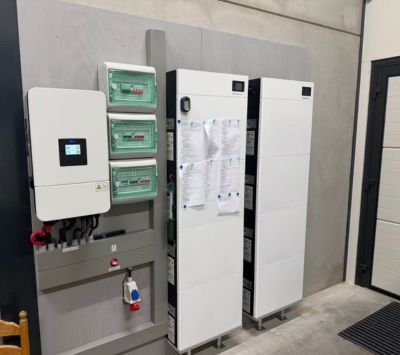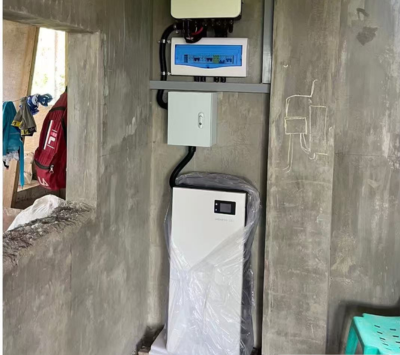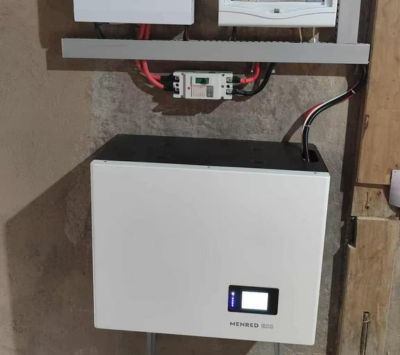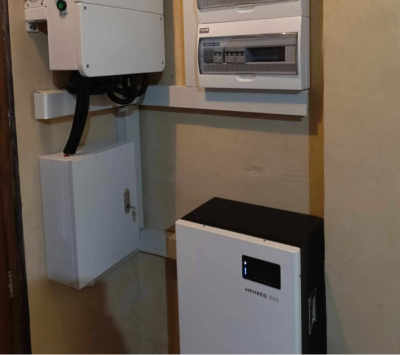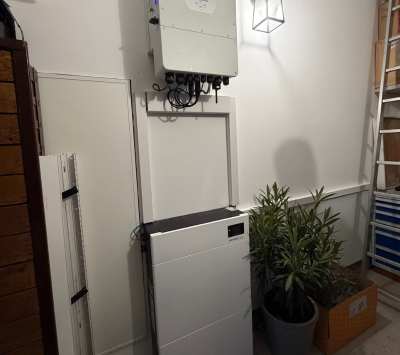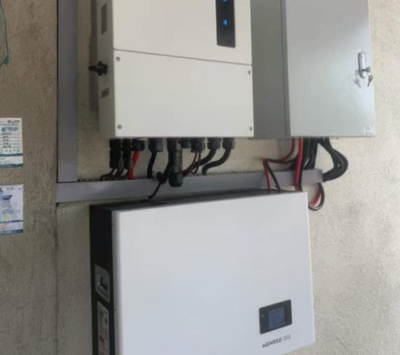Lithium-ion batteries have rapidly become the preferred power solution for a wide range of devices, from smartphones and tablets to laptops and power tools. Chances are, you’re reading this article on a device powered by lithium-ion technology! These batteries have quietly powered countless consumer electronics, and their reach extends further, powering electric vehicles, hybrids, and autonomous driving systems. As technology continues to evolve, lithium ion batteries for solar power are emerging as a key solution in renewable energy storage, offering unprecedented efficiency and flexibility.
Today’s lithium ion battery for solar power systems are more powerful, smaller, and lighter than ever before. This makes them ideal for portable devices, extending their battery life while reducing their size. But how do these advantages translate to stationary applications, such as solar energy storage systems? Beyond their size and weight, lithium ion batteries provide a host of additional benefits, making them the best choice for storing solar power. These benefits include reduced costs, improved reliability, enhanced scalability, and advanced remote monitoring features.
For example, industries such as data centers, telecom networks, and edge computing providers are increasingly adopting lithium ion batteries for solar power systems. These batteries help reduce operational downtime and improve energy efficiency. In solar energy storage applications, lithium ion batteries serve as reliable backup power sources, offering an efficient and long-lasting alternative to traditional storage solutions. This is especially valuable in off-grid or remote areas where access to the conventional power grid is limited.



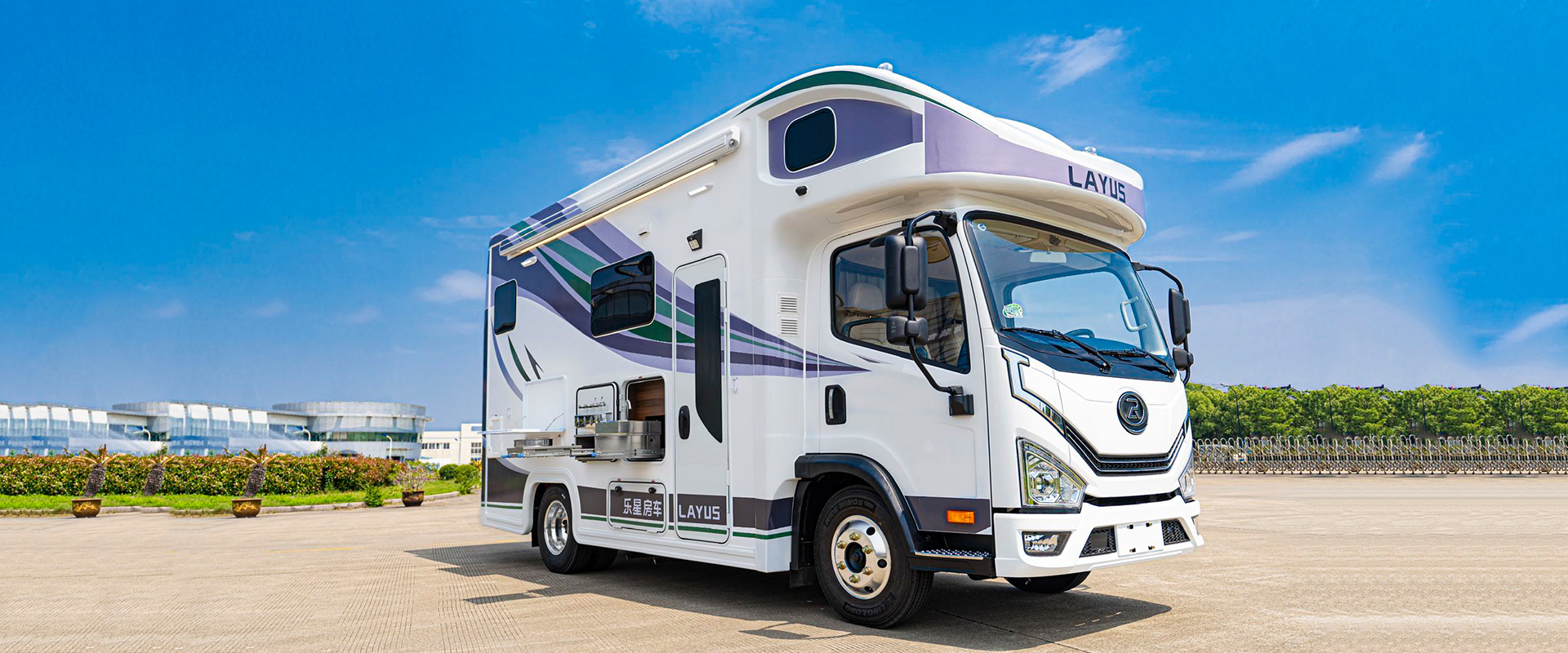
Advantages of Lithium Ion Batteries for Solar Power Storage
As the renewable energy market continues to grow, the demand for efficient, reliable, and long-lasting energy storage solutions has never been higher. Lithium ion batteries for solar power offer a number of key advantages that make them the ideal choice for solar energy systems, both residential and commercial. These advantages go beyond just being lightweight and compact. Let’s explore some of the key benefits: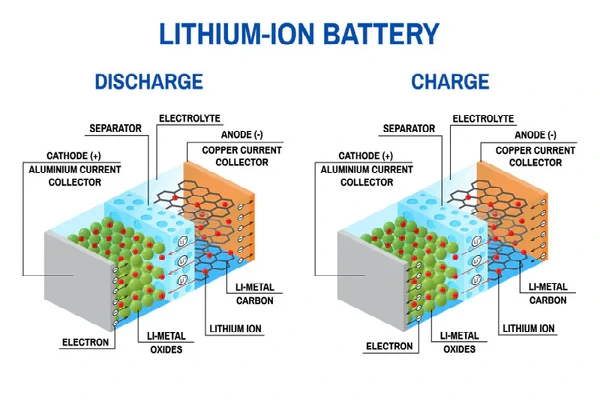
1. High Efficiency and Low Self-Discharge Rate
One of the major benefits of lithium ion batteries for solar power is their high efficiency. Lithium ion batteries typically have a round-trip efficiency of 90-95%, meaning that only 5-10% of the energy is lost during the charging and discharging cycle. This is significantly higher compared to lead-acid batteries, which have an efficiency rate of 70-80%.
In terms of self-discharge, lithium ion batteries exhibit a rate of only 2-3% per month, which is far lower than lead-acid batteries, which can lose 15-20% of their charge in the same period. This low self-discharge rate ensures that more energy is retained over time, making them highly suitable for solar energy storage, where stored energy may need to be utilized over an extended period.
2. Impressive Energy Density
Energy density is a key metric in battery technology that determines how much energy can be stored per unit of weight. Lithium ion batteries for solar power have an energy density ranging from 150-250 Wh/kg, depending on the specific chemistry (e.g., lithium iron phosphate (LiFePO4) vs. lithium nickel manganese cobalt oxide (NMC)). In comparison, lead-acid batteries typically offer only 30-50 Wh/kg, making them much bulkier and less practical for space-constrained installations.
The higher energy density of lithium ion batteries means that they can store more energy in a smaller, lighter package. For example, a 10 kWh solar power system using lithium ion batteries can be installed in a fraction of the space required for the same capacity using lead-acid batteries, enabling more efficient use of storage areas.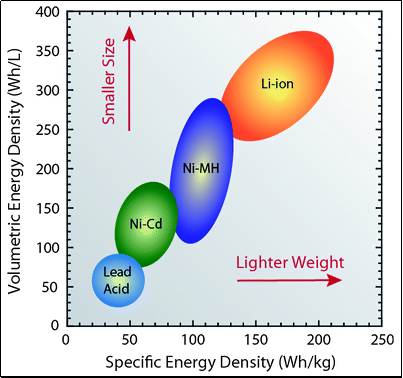
3. Longevity and Life Cycle
The lifespan of a battery is crucial for cost-effectiveness and long-term performance. Lithium ion batteries for solar power often have a life expectancy of 10-15 years and can sustain 3,000 to 10,000 charge cycles, depending on the chemistry and depth of discharge (DoD). This is significantly longer than lead-acid batteries, which typically last only 3-5 years and offer 500-1,000 charge cycles.
For instance, a lithium iron phosphate (LiFePO4) battery, which is commonly used in solar power applications due to its stability and safety, can offer up to 6,000 cycles at an 80% DoD. This makes lithium ion batteries a more sustainable and financially sound choice over the long term, reducing the need for frequent replacements.
The Role of Lithium Ion Batteries in Off-Grid Solar Power Systems
One of the most exciting applications of lithium ion batteries for solar power is in off-grid solar power systems. These systems are designed for areas that do not have access to the main electrical grid, such as remote locations, rural communities, or even disaster-stricken areas. Off-grid systems rely heavily on energy storage to ensure that power is available when needed, and lithium ion batteries are uniquely suited to meet these needs.
1. Reliable Energy in Remote Locations
In off-grid solar systems, having a reliable source of energy storage is critical. Since these areas don’t have access to the electrical grid, solar power is often the only viable source of electricity. Lithium ion batteries for solar power provide an excellent solution due to their high energy density and efficient charging and discharging capabilities. With discharge efficiencies of over 90%, lithium ion batteries ensure that most of the captured solar energy is usable.
The high energy density also allows for more compact installations, which is essential in areas where space is at a premium. This enables off-grid solar systems to deliver consistent and reliable energy to homes, schools, and businesses, even in isolated regions where infrastructure is limited or non-existent.


2. Enhanced Durability and Temperature Tolerance
Lithium ion batteries for solar power are known for their durability and ability to operate within a wide temperature range, typically from -20°C to 60°C, though this varies based on specific battery chemistry. This broad tolerance to temperature changes makes lithium ion batteries an excellent choice for off-grid solar installations in regions with extreme climates, where traditional lead-acid batteries may falter.
However, while lithium ion batteries perform better than lead-acid batteries at low temperatures, careful temperature management remains crucial. The capacity of lithium-ion batteries tends to decrease significantly at lower temperatures due to reduced chemical activity. For example, below 5°C, charging efficiency drops, and charging is generally prohibited below 0°C to prevent potential damage. Low-temperature charging can lead to lithium metal plating on the anode, which, combined with vibration or physical pressure, can compromise the internal structure and cause irreversible damage to the battery.
Certain chemistries, such as LiFePO4, offer better resistance to overheating and do not typically require active cooling systems, reducing the complexity and costs associated with system setup. Nevertheless, in cold climates, strategies like insulated enclosures or external heating elements may be used to ensure optimal performance and prolong battery life. These considerations reinforce the importance of managing temperature effectively in lithium ion battery systems for solar power to maintain efficiency and reliability over their operational lifespan.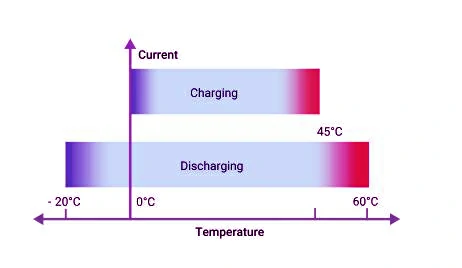
3. Lower Maintenance and Long-Term Cost Savings
Maintaining energy storage systems in remote or off-grid areas can be challenging and expensive. One of the standout features of lithium ion batteries for solar power is their low maintenance requirements. Unlike lead-acid batteries, which may need regular checks for water levels and equalization charges, lithium ion batteries are virtually maintenance-free, thanks to their advanced chemistry and built-in battery management systems (BMS).
The BMS monitors battery health, regulates temperature, and ensures balanced charging and discharging, which helps extend the lifespan of the battery and reduces the need for hands-on intervention. This translates to significant long-term cost savings and reliability for off-grid solar systems.
Enhanced Durability and Temperature Tolerance of the MENRED ESS LFP.6144.W Storage Battery
When it comes to efficient and reliable energy storage, lithium ion batteries for solar power have become a preferred solution. The MENRED ESS LFP.6144.W model stands out due to its impressive durability and operational versatility, making it an excellent choice for solar energy systems. With a capacity of 6.144 kWh, this battery supports both residential and commercial solar power setups.
One of the key advantages of using lithium ion batteries for solar power is their ability to perform within a broad temperature range. The LFP.6144.W model can discharge effectively between -10°C and 50°C, and supports safe charging from 0°C to 50°C. This capability ensures reliable operation in varied climates where traditional batteries, such as lead-acid, may falter under similar temperature conditions.
However, managing temperature effectively is crucial for maximizing the performance and lifespan of lithium ion batteries for solar power. When temperatures approach the lower end of the charging range (around 0°C), chemical activity can slow, reducing charging efficiency. Charging below 0°C is generally discouraged, as it can lead to lithium metal plating on the anode, potentially causing irreversible damage to the internal structure of the battery.
The LFP (lithium iron phosphate) chemistry utilized in the LFP.6144.W model enhances safety by offering resistance to overheating and minimizing the need for active cooling systems. This design not only reduces installation costs but also ensures stable and reliable operation. In colder regions, however, incorporating insulated enclosures or external heating can further optimize the battery’s functionality, ensuring consistent energy availability.
Choosing lithium ion batteries for solar power like the MENRED ESS LFP.6144.W provides users with an efficient, robust, and scalable solution that withstands varied temperature conditions while maintaining high performance. This demonstrates why temperature management and the advanced design of lithium-ion batteries are vital for reliable and sustainable solar energy storage.

lithium lifepo4 storage battery installation case #1

lithium lifepo4 storage battery installation case #2

lithium lifepo4 storage battery installation case #3
Conclusion: Why Lithium Ion Batteries Are the Best Choice for Solar Power Storage
As the renewable energy landscape continues to evolve, lithium ion batteries for solar power have emerged as the ideal solution for efficient, reliable, and cost-effective energy storage. Their high energy density (up to 250 Wh/kg), long lifespan (up to 10,000 cycles), and efficiency (over 90%) make them the top choice for both residential and commercial solar power systems.
In addition, lithium ion batteries excel in off-grid solar applications, providing reliable power in remote locations, offering excellent temperature resilience, and requiring minimal maintenance. The ability to store more energy in less space, combined with lower overall lifecycle costs, makes them a superior choice over traditional lead-acid batteries.
With continued advancements in battery technology, lithium ion batteries are poised to play a critical role in the future of solar energy. For users looking to maximize their investment and energy efficiency, choosing lithium ion batteries for solar power means embracing a sustainable and robust solution that supports a cleaner, greener world.

